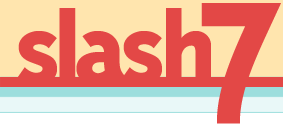Design: Ease of Control, or Challenge of Relationship?
You’ll have to forgive me, cuz I’m trying hard to find a way to wrap my head around a concept in my head so I can express it.
The test everything trend in design bothers me. Or to make every decision based on the numbers. Or to focus on problem-solving. Or patterns.
I’m trying to formulate a good way to express *my* approach to design, but when I try, people don’t understand. I’m aware this is a problem on my end, not yours. But I’m gonna keep trying.
This is a quote from a comment on an article on BoingBoing:
[Projects] are all different. The only thing you can be sure with when you start out on the journey… is that you need to get to know this [design challenge]… taking statistics seems to me to be an obsessive-compulsive way of trying to gain control, not starting what ought to be a conversation.
This is really getting close, I think…
Statistics can provide insight, and they can be extremely useful—at the right stage of the design process.
But add them earlier, and instead of shedding light on a problem, they give you the illusion of understanding. They give you concrete handholds in the misty, ethereal world of possibility. That sounds good. But if you want handholding in the mists of possibility, you have to follow the path where the handholds are. That reduces the whole thing to one possible trajectory. You’ll never know what you could have been capable of.
It gives you an entirely false sense of knowing. But once you get ahold of that false sense, you will not want to let it go.
Developers call this “premature optimization,” but that’s not quite right for what I’m talking about.
Rather than tuning something unneccessarily early—possibly wasting time, possibly risking that you will end up tossing that bit out anyway—you test your way out of mastery. Most people don’t mean “your whole thesis is wrong” when they accuse you of premature optimization. They just mean you’re putting in too much time up front before you have to.
But in design, this premature optimization for statistics can obscure the fact that your entire approach is wrong, uncreative, driven by “well nothing else will work.”
You end up tweaking, instead of rethinking. You end up smoothing out the edges on what you’ve already got, rather than coming up with a new shape altogether. It’s incrementalism, and fear, backed up by “science.”
By the way, the quote above is actually about babies. I changed two words to make my point.
But it sounds right to me.








It sounds like using statistics too early pushes you to a local maximum. That’s an issue that optimization problems often have to deal with.
It’s like that dude that quit Google because they wanted to test 32 shades of blue said… You lose the spirit of something. Some things have character because they’re not optimal. This desire for everything to be statistically most significant misses what makes things interesting, something to learn from and something worth being involved with.
Hence shades of blue dude left Google.
You know, Mike, I think I always misunderstood what "local maximum" meant. I always figured it meant "beyond which there is a greater maximum." For example, your exercise ability today vs 2 mos from now.
But I think you’re right. You get absorbed in tweaking what you’ve got, and therefore don’t see that it could be totally different… and so "local" is "the thing you’ve got." Right?
Max, yeah, I was definitely thinking about Bowman when I wrote that… that’s just ridiculous. How much obsessing on shades of blue could have been turned into developing shockingly awesome new services instead?
But I think there are also more insidious cases, too.
Like blogs. Everybody who writes a blog engine wants to improve blogs. But they don’t ever really change any of the fundamental assumptions / blog structures. All blogs pretty much look the same and function the same.
Does that make sense? Or do I just sound nuts? 🙂
Greetings,
Boy, this sounds familiar…statistics driven creative processes…hmmm…I think you end up with disco.
— Morgan
I find the same fear daily in the estimates realm, especially when working within a large company.
Estimates are desirable because they give the sense of control by management, and the sense of control gives the sense that something ought to be controlled.
It’s a dark day when the managers realize that the estimates were simply that, and that they were given under coercion with very little information. Usually, it’s darkest for the developers who’ve "not kept their end of the deal" by going over the estimate.
Sorry, a bit off target possibly…
I’m really struggling to express myself clearly with this concept too. So frustrating! You’ve probably read it already, but just in case you haven’t The Blind Watchmaker by Richard Dawkins is a great book on evolution (which is the great grand-daddy of optimisation 😉
Ability to conceptualize freely without stats and analytics early on is so well articulated in this post. Love it!
I’m coming in late here. My field is writing, but creating a piece of writing is a kind of design.
I think you have to do research, audience analysis, some rough sketches or outlines, but before you can complete a synthesis of a form that works, you have to allow your creative unconscious to work on it. If you don’t, and grab the first handhold you find, and go with it, you may end up throwing it all out and starting over.
But once the creative synthesis occurs, producing the overall structure, the rest of the work flows more smoothly, the barriers break down, and many details seem to more readily fall into place.
Great information This is cnlraiety superior. Persons stare upon a legal case article content therefore we are staggered. We’re interested in this kind of clothes. Members appreciate of accumulate, and evaluate your precious time in this. Please keep cutting. These are